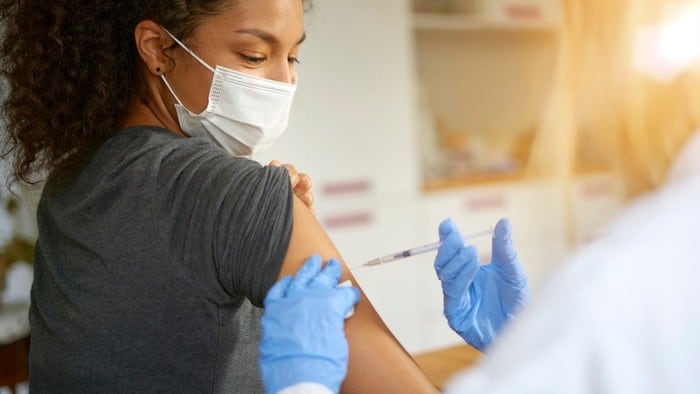This article was originally published on Fool.com. All figures quoted in US dollars unless otherwise stated.
As an investor, it's hard not to focus on the incredible revenue generated by COVID-19 vaccine makers like BioNTech (NASDAQ: BNTX). They have taken a new technology and turned it into one of the best selling drugs of all time. This year could be just the beginning.
After years of scientific research, the age of genetic medicine might have finally arrived. That's great news for BioNTech shareholders. They could see decades of gains ahead. Ironically, the vaccine could now be the biggest threat to those gains in the short term. It's turning out that the vaccine might just work too well.
1. Comirnaty: The COVID-19 Vaccine
Any discussion of BioNTech has to begin with the COVID-19 vaccine it developed with partner Pfizer (NYSE: PFE). As of May 6, more than 450 million doses of the drug had been provided across 91 countries. Combining all COVID vaccine producers, the U.S. is administering about 875,000 doses each day. That number is more than 45 million globally.
The partners already have orders for 1.8 billion doses this year and expect the total capacity for production to reach 3 billion by the end of 2021 (and even more in 2022). Based on the firm orders as of May, BioNTech management was expecting revenue of 12.4 billion euros. Extrapolating that number to the full allotment of doses would bring in more than $20 billion in sales. It's amazing for a product that didn't exist a year ago. However, for the company's $27 billion market cap to hold up over time, it will likely have to bring other drugs to market. On that, it's making progress.
2. A head start in a new era of medicine
With the success of its mRNA-based vaccine, BioNTech and Moderna (NASDAQ: MRNA) have established themselves as early leaders in a revolutionary new biotechnology. For its part, BioNTech has 14 drug candidates in 15 clinical trials. It was originally founded to beat cancer, and the company has several oncology programs going into phase 2 trials this year.
Its skin cancer treatment -- with partner Regeneron -- dosed its first phase 2 patient in mid-June. Its head and neck cancer treatment, combined with Merck's Keytruda, should dose its first phase 2 patient in the coming weeks. Phase 2 for BioNTech's individualized colon cancer treatment will start later this year. In that treatment, a patient's specific tumor mutations -- or neoantigens -- are used to develop a targeted therapy. The number of programs the company is pursuing speaks to the ambition it has for the future of mRNA.
3. Leadership has serious skin in the game
Amid the flurry of executive stock sales in 2020, when shares of companies benefiting from the pandemic skyrocketed, one man stood firm. Ugur Sahin, co-founder and CEO of BioNTech, never sold a single share. It fits his personality. He reportedly doesn't own a car, bikes to work, and continues to live in a modest apartment.
Filings show Sahin controls 17% of the company worth approximately $9.4 billion. Although there is nothing onerous with their actions, the leaders at Pfizer and Moderna pocketed a combined hundreds of millions of dollars in sales through 2020. A CEO who sells stock isn't necessarily a reason to be concerned. But a CEO with most of his personal wealth aligned with shareholders is definitely a good sign.
The vaccines might be too good
Until now, most had been operating under the assumption that COVID protection would mean getting a booster shot each year -- like the flu. But the SARS-CoV-2 virus doesn't mutate as fast as your typical influenza bug. And it is looking like our bodies defenses, through inoculation of having had the illness, might be long-lasting.
A just-published peer-reviewed study indicated the protection offered by the mRNA vaccines could last for years, making the need for booster shots unnecessary. That doesn't apply to the Johnson & Johnson jab. The lack of enduring protection from that drug will create some incremental demand for both BioNTech and Moderna's shot. The study didn't account for the delta variant. It's possible that could complicate the study's conclusion.
The news makes it even more imperative that BioNTech comes up with a second act soon. Sahin has said it could launch multiple products in the next five years. It certainly has the ingredients: a full pipeline, the proven scientific acumen, and dedicated leadership. But much of the current valuation may be counting on vaccine demand persisting for a few years. If that falls off, it could be a bumpy ride for shareholders while they wait for an encore.
This article was originally published on Fool.com. All figures quoted in US dollars unless otherwise stated.









